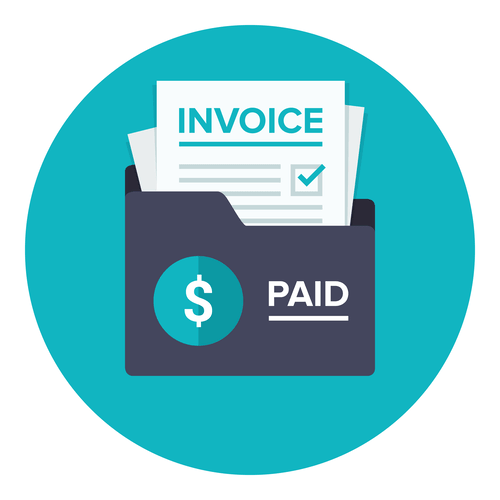Content

They’ll need to make the necessary adjustments to your books and assign expense categories to your transactions—all tasks your bookkeeper could’ve done for much less. A bookkeeper helps rectify this situation by recording your business’ daily transactions so you’re better able to understand your financial situation at any given moment. And when your books are up-to-date, you’ll be better prepared for any opportunity or issue that comes your way. All of our bookkeepers and accountants are in the U.S.—because that’s where our clients are! This means your team is always regional, accessible, and trained to support you.
There are many traditional and non-traditional bookkeeping tasks that can add tremendous value to a business. You will probably need to offer some combination to give yourself a shot at consistent work. It’s a bookkeeper’s job to make sure that the accounts are valid and up-to-date when the accountant needs them. This lets an accountant use their knowledge to make business recommendations and complete any tax returns. The real estate industry is one of the fast-growing sectors in this competitive market.
How to Choose an Online Bookkeeping Service as a Business-of-One
These programs typically require a monthly or annual subscription, with a few levels that include different services. You can sign up based on your business needs and upgrade as you grow. There’s a good chance your business’s financial needs will eventually surpass your accounting skills. Or, at least, you’ll realize your time is better spent on other parts of the business, so it’s worth it to outsource the financial stuff. As your Business-of-One grows from a simple freelancing or consulting operation into a bonafide business – whatever that means for you – your finances will get more complicated.
- Producing invoices, chasing payments, getting you ready for tax deadlines and processing payroll.
- By keeping track of every sale or purchase and using software to do it all, it’s much easier for them to keep an eye on your cash flow.
- Would you rather hide your information and not have the ability to organize them?
- The role of a bookkeeper is about information entry and analysis.
- You can also choose to become a certified public bookkeeper to market yourself better as a bookkeeping professional.
Accountants rely on the information that comes out of the accounting system to prepare the necessary reports and analysis that business owners use to make informed decisions. They also do things like build budgets and prepare dashboards to track key performance indicators for the company. Additionally, an accountant may oversee a bookkeeper’s work. So, generally, an accountant’s role requires more education. Most small businesses pay for goods and services with a credit or debit card.
Watch Out for These Common Startup Bookkeeping Mistakes
Not every startup will be ready to hire an outsourced bookkeeping service on day one. But that’s no excuse for not keeping track of your financials. We recommend QuickBooks Online (“QBO”) as the right bookkeeping software for early-stage companies and high growth small businesses. It’s the leading small business accounting software in the US for small businesses, and interfaces nicely with other automated systems like payroll. When you hire a third-party bookkeeper, you need not worry about competence in dealing with your money.
- Sure, you can research and navigate all that yourself—but unless you’re an expert, that’s time-consuming and potentially risky.
- $250 per month is a good starting price for the most basic monthly bookkeeping services.
- Good bookkeepers are organized, skilled with numbers, and fastidious problem-solvers.
- Your bookkeeping services team always syncs your paper and digital trail, so your financials are accurate no matter how you access them.
- There are particular moments when automated systems are likely to introduce mistakes, such as when employee benefits are changed.
- Putting the vendor name in for each expense is a simple thing.
Our account managers have an average of 11 years of experience, and are experts on helping young, funded businesses with their bookkeeping. But that experience helps our team go beyond simple, outsourced bookkeeping, and offer financial advice and due diligence help that other accounting firms can not match. The consistency of outsourcing bookkeeping services allows managers to pinpoint the wrongs and rights of every financial venture. With proper skill, a professional bookkeeper can easily spot whether an investment is a flop or a win. One of the benefits of outsourcing bookkeeping services is never having to worry about deadlines. Instead of putting all your time and effort adjusting and reporting your financial transactions, the third-party bookkeeper does it for you.
Single vs. double-entry bookkeeping
As your business grows and you hire employees, you can consider whether to rent office space or keep working remotely. You want your business name to reflect you as a person and the type of services you provide. Your business name is the first thing that lets customers, clients, competitors and others in the marketplace know about who you are and what you do. For a bookkeeping business, you may also want to include information regarding your niche and any certifications that you have as well. Excellent recordkeeping allows your business to keep track of the clients your business has, when invoices are paid, and when invoices are overdue.
What are the three types of bookkeeping?
A business must use three separate types of accounting to track its income and expenses most efficiently. These include cost, managerial, and financial accounting, each of which we explore below.
Consider your circumstances and unique business needs to choose the model for bookkeeping that makes the most sense for your business. Depending on what kind of business you run, you may get paid through monthly invoicing to your clients or customers. For a Business-of-One, even with contractors or a small number of employees, simple bookkeeping is usually sufficient. You thought you were finally going to get to be creative or focus on your services or create your products – then you have to file a tax return. Wherever your business is today, and wherever you want to go tomorrow, Milestone is here to help you take the right steps forward. Click here to learn more about the Milestone difference and unleash your back office.
Differences Between Public Accounting & Internal Audits
Grew from a 2-person startup to a NASDAQ listed public company. Startups are more successful when they can accurately budget and plan for growth. Startups need more than a robot to reconcile the accounts, they need a trusted advisor who is in tune with their unique growth path. An outsourced bookkeeper can adjust to your needs and response to your requests quickly and effectively. This article has given most basic information on book keeping.

Hiring a virtual bookkeeper is your most customizable option, because you’ll be able to bring on someone who works for your business and completes the tasks you need. That means this is also usually the most expensive way to do bookkeeping, even online. You’ll have to pay a contractor rate or employee wages, plus applicable taxes, https://www.bookstime.com/bookkeeping-services to keep someone on your team. Before you decide to hire a bookkeeper, ask what accounting software they use. If you already have a software package that you prefer, will they use that or make you change to something else? You should also make sure you understand who owns the software license and whether it is transferable.
How Good Bookkeeping Pays for Itself
When you’re familiar with these terms, it’s easier for you to coordinate with your bookkeeper and minimize your unnecessary spending. Investors are also impressed when you present them with complete reports of your business transactions. The first entries show the assets while the liabilities and the equities are placed last.
What can an accountant do that a bookkeeper can t?
Bookkeepers and accountants sometimes do the same work, but have a different skill set. In general, a bookkeeper's role is to record transactions and keep you financially organized, while accountants provide consultation, analysis, and are more qualified to advise on tax matters.
Apart from just recording, they point out inefficiencies in your entries and how you may create cost-efficient strategies to refrain from incurring unnecessary expenses. In order for the bookkeeping services to be effective, the trueness of accounts is a top priority. Whenever there are discrepancies in the recording of transactions, the bookkeeper can help resolve the issues. As your business grows, it may be time to hire a service to manage your books.
Choose a local or virtual bookkeeper
Founders shouldn’t be burdened with making sure they carefully and correctly code financial transactions so automated bookkeeping services don’t mess up. This is where outsourced bookkeeping services come into play! These service providers are experts in their work and can easily keep track of inventory and raw material, providing accurate financial reports. Therefore, manufacturers consider outsourcing services to save cost as well as time.
Outsourcing bookkeeping services expose your business to more experienced experts who know how to properly organize your financial transactions. Keeping tabs on your finances is among the things that make successful businesses prosper in the long-run. Hence, outsourcing bookkeeping services allow you to hire experts who know accounting. Small business owners and entrepreneurs typically outsource accounting and bookkeeping services.
Financial statements and reports also give insight into your cash flow and helps you determine how to improve your business. Keeping up on revenue and expenses also helps simplify the tax process and helps you find write-offs. Bookkeeping services for smaller companies will help manage daily financial activities related to the business including recording income and expenditure and submitting financial statements. While there are ways DIY bookkeeping, it is difficult to keep up on all the records.
- Now it’s time to take your business to the next level and ensure its future success by putting an accounting team in place.
- The typical point where it starts to make sense to hire a startup bookkeeper is when a company has raised over $250,000 in funding and has 6+ months of runway.
- The beauty of accounting services is that it’s team-based, and your partner firm will have the professionals—and processes—in place to continue successfully managing your account.
- Online bookkeeping platforms are continuously fine-tuned, giving you a competitive edge when it comes to growing your business.
- These may include invoicing, handling tax returns, managing accounts payable, reconciling financial statements, processing payroll and monitoring performance indicators.
For full tax support, you need to work with an accountant (CPA) or IRS Enrolled Agent (EA). Bookkeepers can keep your financial records in order to make sure you’re prepared for tax time, but they’re not allowed to prepare and file tax returns for you like a CPA or EA is. When comparing accountants and bookkeepers, know that an accountant may also be a bookkeeper. Familiarizing yourself with what a bookkeeper does and what accounting clerks do can help you narrow down your financial needs. It is not only important that your employees get paid on time, but that you also post the payroll in your accounting system as soon as it occurs. Payroll is usually a significant expense for a business and by not recording it in your books in a timely manner, you will not have an accurate view of cash.







